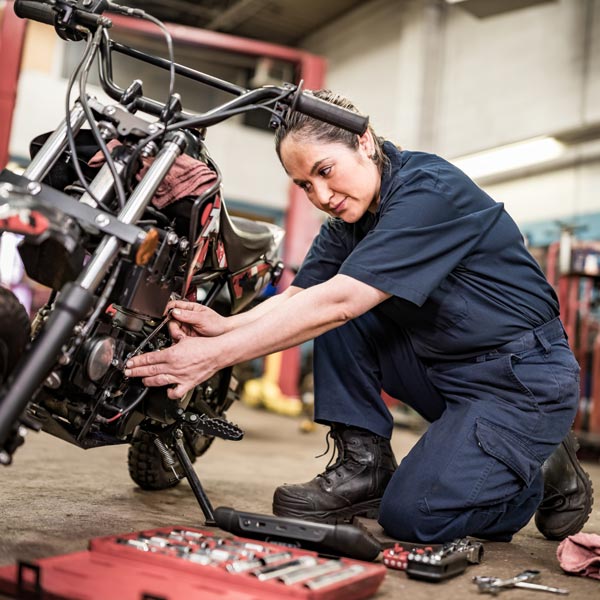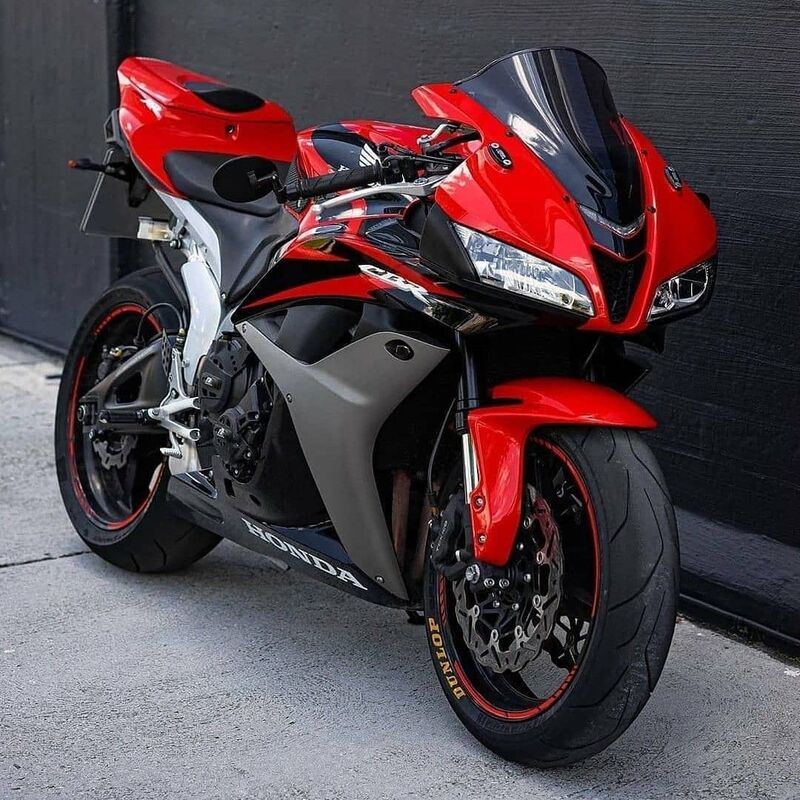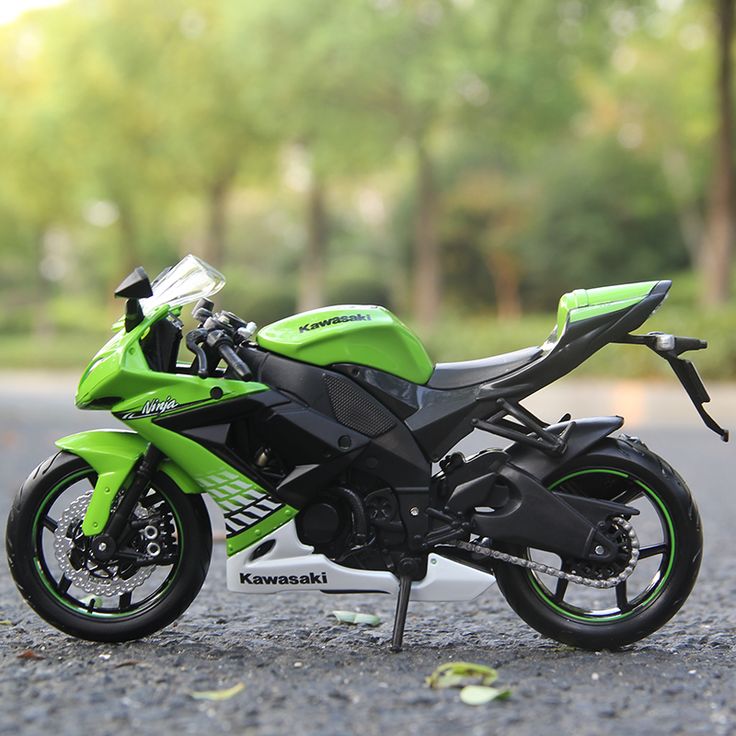If you have a passion for motorcycles, becoming a mechanic could be a fulfilling career. The world of motorbike repair is exciting and diverse. Choosing the right motorcycle mechanic school is crucial for your success. In this article, we will explore the factors to consider, the skills learned, and the benefits of attending a specialized school.
Understanding the Importance of Motorcycle Mechanic Schools
Why Attend a Specialized School?
Attending a specialized motorcycle mechanic school offers numerous benefits. For starters, you gain hands-on experience. Most schools provide workshops with real motorcycles for practice. This practical experience is invaluable in the real world. Furthermore, you learn from experienced instructors who have industry experience. Their knowledge can give you insights that textbooks cannot provide. Also, you can network with fellow enthusiasts and future colleagues. Networking can lead to job opportunities later.
Certification and Accreditation
When selecting a school, consider its accreditation status. Accredited schools meet specific educational standards. This recognition is essential for employers who seek skilled mechanics. Certifications from reputable schools enhance your resume. They can also add weight to your job applications. Many employers prefer hiring graduates from accredited programs. Accreditation can be the key to a successful career in this field.

Skills Developed at Motorcycle Mechanic Schools
Technical Proficiency
Attending a motorcycle mechanic school equips you with essential technical skills. You will learn about mechanical systems, electrical systems, and more. This knowledge is fundamental for diagnosing and solving mechanical issues. Additionally, you will receive training in engine repair and maintenance. Understanding engine components is vital for troubleshooting.
Moreover, you will become proficient in using specialized tools. Familiarizing yourself with equipment like torque wrenches and diagnostic machines is crucial. These tools are commonplace in motorcycle workshops. Being skilled in their use sets you apart from non-trained candidates.
Customer Service and Business Skills
In addition to technical skills, schools often focus on customer service. Mechanics often interact with customers. Understanding how to communicate effectively improves customer satisfaction. You will also learn basic business skills. This knowledge is essential if you plan to open your own shop. These aspects of training make you a well-rounded candidate in the job market.
Finding Motorcycle Mechanic Schools Near You
Researching Options
Once you’ve decided to pursue this career, researching local options is essential. Use online resources, such as school directories and forums. These platforms provide valuable information about various schools. Additionally, consider visiting schools in person. A physical visit allows you to gauge the environment and facilities. This step can help in making an informed decision.
Moreover, talking to current students can offer insights. They can share their experiences, both positive and negative. This firsthand information is invaluable for assessing the quality of instruction. A well-informed decision can set the stage for future success.
Checking Reviews and Testimonials
When choosing a motorcycle mechanic school, reviews and testimonials matter. Search for online reviews from former students. Their experiences can reveal the school’s strengths and weaknesses. Positive feedback often indicates quality instruction and a supportive environment.
Conversely, negative reviews may highlight red flags. Take note of any common issues mentioned. This information can guide your decision-making process. Ultimately, it’s crucial to select a school that aligns with your goals.

The Curriculum of Motorcycle Mechanic Programs
Core Courses
A typical motorcycle mechanic program includes several core courses. You will usually cover subjects like motorcycle engine fundamentals. This course teaches you about how motorcycle engines function. Additionally, you will study electrical systems. Understanding how these systems interconnect is vital for troubleshooting.
Moreover, classes on brakes, suspension, and tires will also be offered. These subjects are crucial in providing a comprehensive education. Each component plays a role in overall motorcycle performance. The goal is to ensure that you understand every aspect of motorcycle dynamics.
Specialized Training and Electives
Many schools offer specialized training and elective courses. These can enhance your expertise in niche areas. For example, you may explore high-performance motorcycle modifications. Alternatively, courses may focus on restoration techniques for vintage bikes.
Specialized training keeps you updated on industry trends. This knowledge can make you more attractive to employers. Consider what areas interest you most when selecting electives.
Job Opportunities After Graduation
Entry-Level Positions
Graduating from a motorcycle mechanic school opens up entry-level opportunities. Many graduates land jobs in motorcycle repair shops. Others may find positions with dealerships that sell motorcycles. Starting positions often involve routine maintenance and repairs.
Over time, you may advance to more complex tasks. As you gain experience, you can specialize in areas you enjoy. Specialized roles often come with increased responsibilities and pay.
Opportunities for Business Ownership
Some graduates choose to open their own motorcycle repair shops. Starting your own business allows for creative freedom. However, this path comes with challenges. Running a successful business requires significant planning and management skills.
Business courses offered in your program may prepare you for this opportunity. Additionally, having a solid understanding of customer service is key. Satisfied customers can lead to referrals and repeat business.
Continuing Education and Professional Development
The Importance of Lifelong Learning
Even after graduation, continuing education remains crucial. The motorcycle industry constantly evolves. New technologies and methodologies develop over time. Staying updated ensures your skills remain relevant.
Consider enrolling in workshops or short courses. These can help you learn about the latest tools and technologies. Additionally, professional organizations often provide resources for continuing education.
Networking and Associations
Joining professional organizations can enhance your career prospects. These associations often offer networking opportunities. Meeting industry professionals can lead to job offers and collaborations. They also provide resources for skill development.
Being part of an association shows commitment to your career. Employers value candidates who actively seek development opportunities. Networking can also help you stay informed about industry trends.

Preparing for Success in the Field
Building a Solid Foundation
Preparing for a career in motorcycle mechanics starts with a solid educational foundation. Your training program should equip you with essential skills and knowledge. Focus on mastering each core subject and hands-on experience.
Moreover, take advantage of any internship opportunities. Gaining real-world experience can significantly bolster your resume. Many internships lead to full-time job offers. They also provide a glimpse into daily work in the industry.
Developing Soft Skills
In addition to technical abilities, soft skills are crucial. Developing strong communication skills will benefit you greatly. Mechanics must often explain issues to customers in layman’s terms. Effective communication can foster customer trust and loyalty.
Furthermore, teamwork skills are important. Collaborating with coworkers and fellow mechanics improves shop efficiency. A harmonious working environment can lead to better job satisfaction.
Conclusion: Your Journey as a Motorcycle Mechanic Awaits
Embarking on this journey toward becoming a motorcycle mechanic is an exciting venture. With the right education, skills, and preparation, career opportunities await you. Take the time to research schools, evaluate curricula, and consider your interests.
By understanding the importance of accreditation and specialized training, you’ll make an informed choice. Continue learning and growing in this dynamic industry. Eventually, you will find yourself thriving in a rewarding career.
The motorcycle culture is vibrant and supportive. Being part of it can be both fulfilling and enjoyable. As you prepare for this exciting journey, remember that your passion will guide you. Your commitment to excellence will set you apart in the field of motorcycle mechanics.



